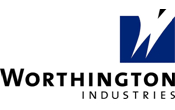Market Segment

March 25, 2021
Worthington Reports Record Performance in Latest Quarter
Written by Sandy Williams
Worthington Industries completed a successful third quarter in FY 2021, shed underperforming businesses, and now looks forward to accelerating strategic growth initiatives.
“Our fiscal third quarter was a record financial performance,” said CEO Andy Rose. “We faced some lingering operational challenges including steel supply shortages, staffing issues related to COVID quarantines and some extreme weather, all of which impact production schedules. But our teams did a terrific job and we delivered outstanding results. The good news is that demand is excellent across most of our end markets and there does not appear to be any signs of let-off.”
Worthington Industries reported net sales of $759 million and net earnings of $67.6 million for its 2021 third quarter. Sales were 1% lower than a year ago, driven by lower sales in the oil and gas business within Pressure Cylinders, partially offset by higher average selling prices in Steel Processing and higher volume in the consumer products business within Pressure Cylinders.
Sales in Pressure Cylinders were down 6% year-over-year due to a $24 million slip in sales in the oil and gas business, leading to divesture of the oil and gas business during the current quarter. Sales in industrial and consumer products rose and demand appears strong with signs of recovery in the company’s European operations.
Steel processing net sales rose 3% from Q3 2020 due to higher average selling prices, partially offset by lower toll volumes. Direct ton shipments (48% of the mix) were flat during the quarter while total shipments decreased 11% due to furnace and mill outages. Operating income set a record of $63 million for the quarter, up $44 million from a year ago. The rapid rise in steel prices resulted in significant inventory holding gains that will continue in Q4. Downstream manufacturing prices were raised to offset higher raw materials costs.
“The U.S. steel market remains extremely tight as demand has recovered more rapidly than supply,” said CFO Joe Hayek. “We believe that we have gained share in key markets and in Q3 continued to see solid demand across our major end markets. The automotive, construction and agriculture markets all continue to show strength, and we are starting to see improvement in heavy truck.”
Along with the recent divesture of the oil and gas segment in Pressure Cylinders, Worthington also divested the unprofitable Structural Composite Industries (SCI) and, in Q2, its CyroScience Operations in Alabama. Worthington recently acquired GTI, expanding the company’s presence in specialty tools as well as PTEC Pressure Technology that complements recent investments in hydrogen and CNG at its European facilities. Future acquisitions will likely be in consumer products or in the industrial products space for cylinders, said Rose.
“It’s an interesting time to be looking at M&A, because it’s a little bit of the haves and have-nots, which have been created because of the COVID situation,” said Rose. “So, when we look at companies, we’re trying to filter through a lot of the changes that have happened in the last year, some of which are sustainable, some of which aren’t.”
The semiconductor chip shortage has had a “muted impact” on Worthington so far, said Hayek. Rose added that most of Worthington’s automotive steel processing (75%) goes into trucks, crossovers and SUVs, automotive segments that are more profitable and likely last to be shut down by the OEMs.
Steel processing declines were almost 100% in the tolling business. “Specific direct tons, which we candidly profit more from and I think are more our core business, were flat, so the decline was exclusively related to our toll tons,” said Hayek, pointing to mill outages. “If they’re not producing steel, obviously we’re not going to toll process those tons.”
Despite ongoing steel supply issues, the company anticipates a “reasonably good seasonal uptick,” added Rose.







